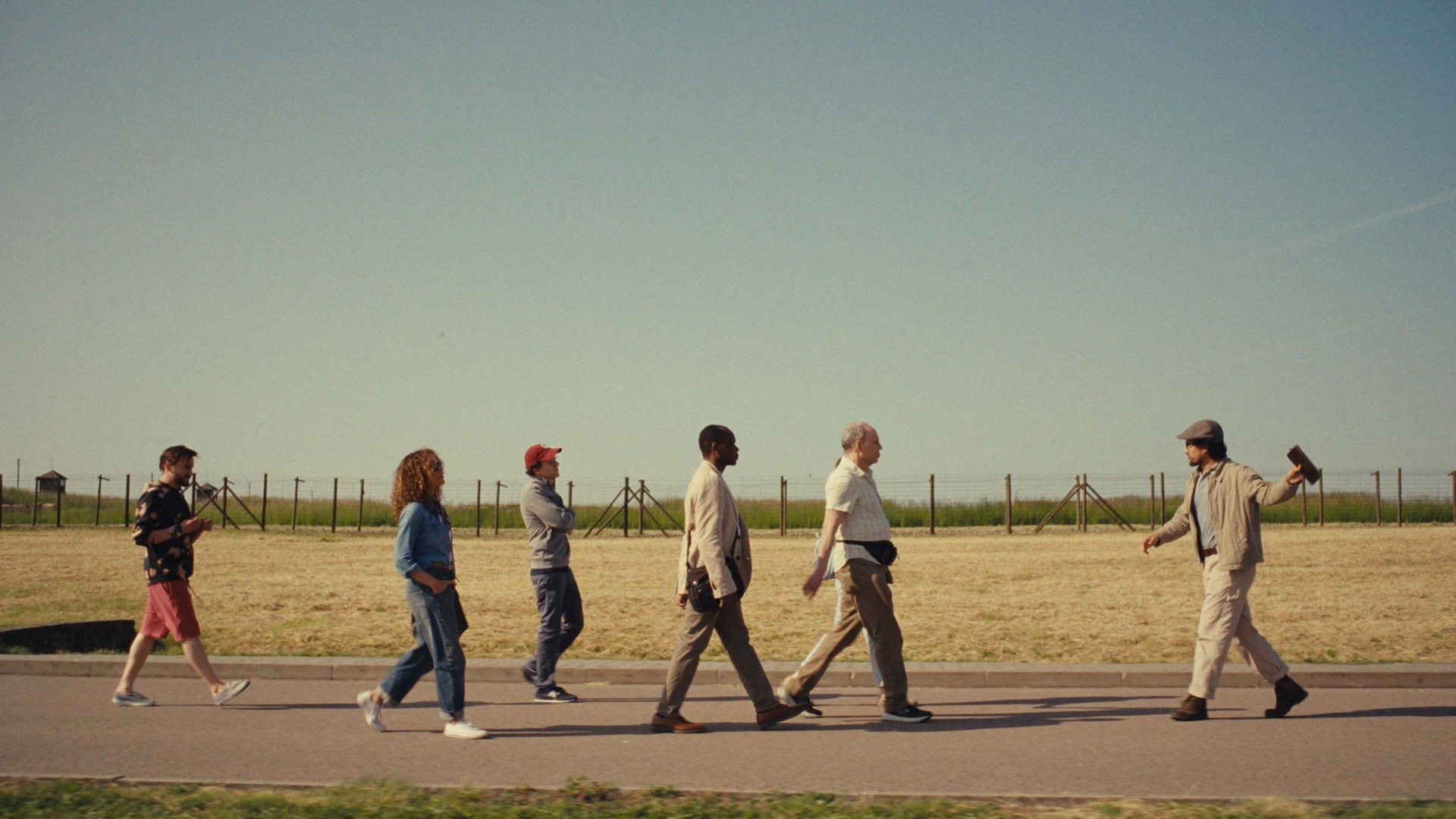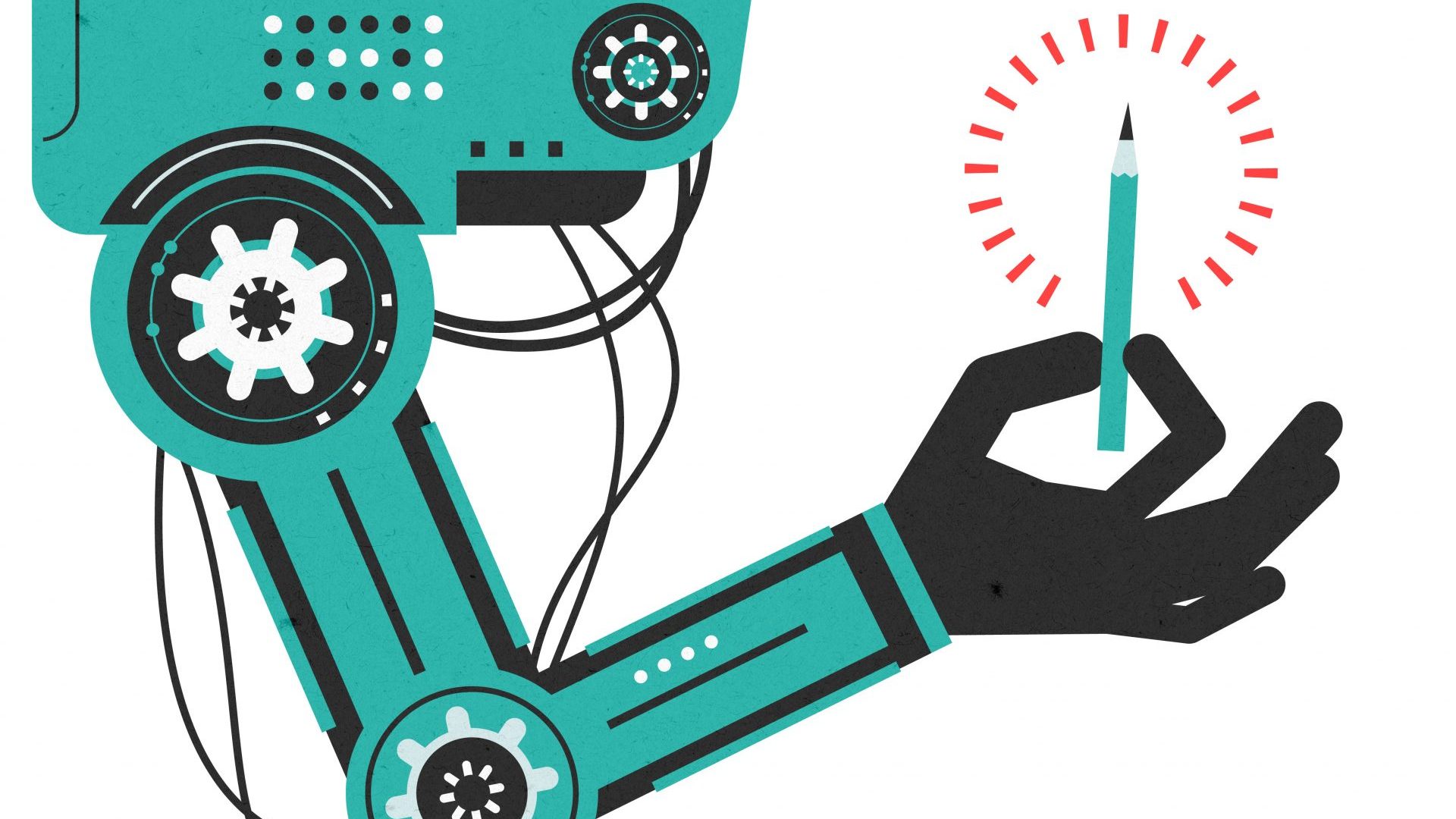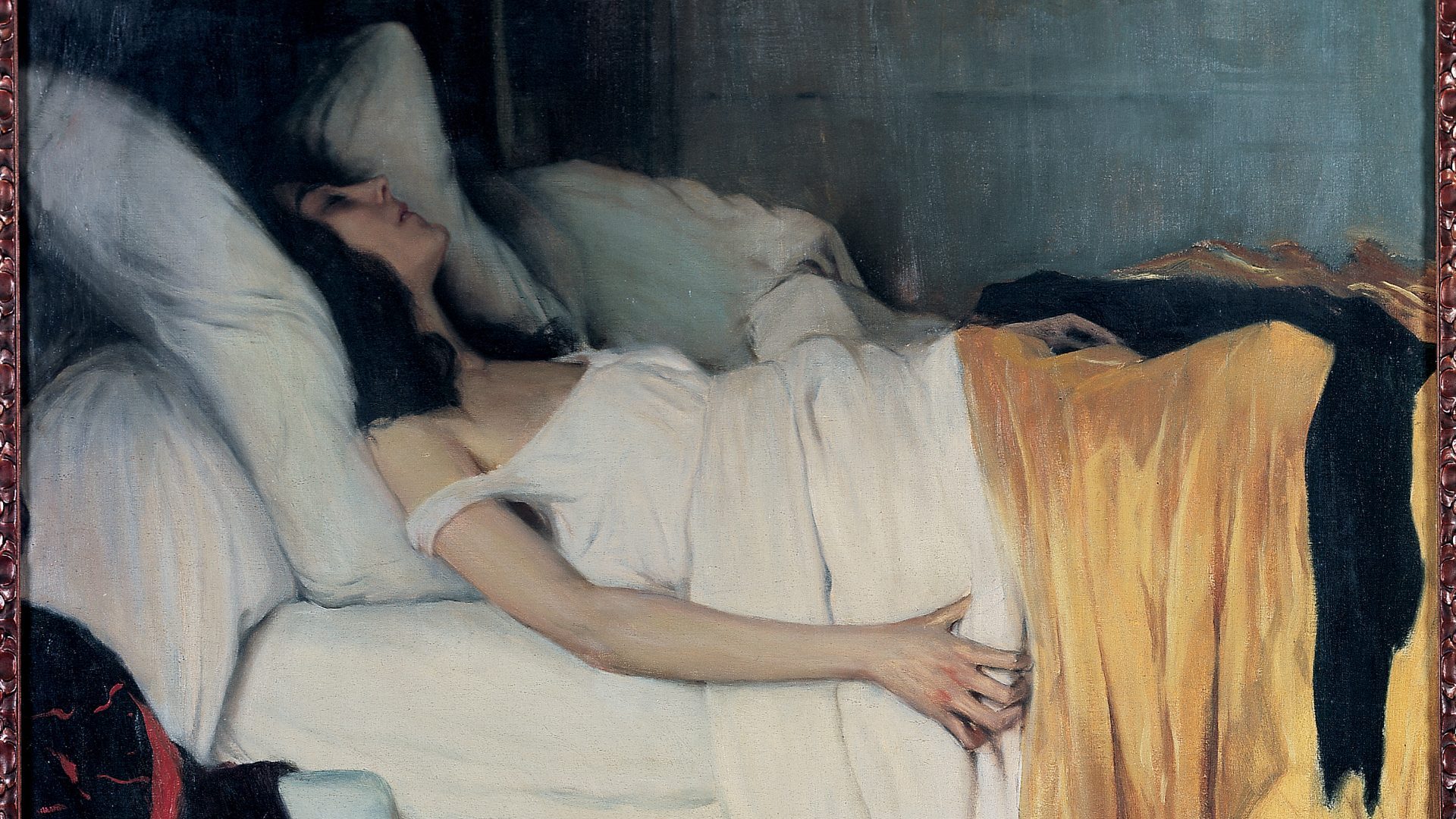You can call it the year’s most unlikely buddy movie. Or maybe it’s a road movie. You might even label it under the infamous genre of Holocaust film.
Quite ingeniously and with an admirable lightness of touch, A Real Pain manages to be all of those and more, sparking a deep reflection on the scars of European history, generational trauma and the nature of grief. It’s also very funny.
The film is written and directed, with equal dexterity and intelligence in both disciplines, by actor Jesse Eisenberg. It follows two New York cousins, David (Eisenberg) and Benji (a fizzing, Oscar-tipped Kieran Culkin), who join an organised group tour around Polish sites and towns in homage to their recently deceased Grandma Dory, even making a personal detour to find the house she grew up in before being rounded up and put in a concentration camp, which she somehow survived – “by a thousand miracles,” says David – later building a life in New York. But, I remind you, the film is a comedy.
The laughter, laced with poison and pain, comes from David and Benji’s banter and tension, particularly pitting David’s guarded, kvetching uptightness against Benji’s stoned looseness and confrontational frankness. Culkin clearly has a ball in a performance that, after his win at the Golden Globes, is sure to earn him several more supporting actor awards to build on his Emmy-winning portrayal of brattish Roman Roy in TV’s Succession.
Although Benji is obviously a pain in the ass, he is also cherishable, witty and clever. And obviously, everyone on the tour is in some kind of pain. Eisenberg says he was inspired by an advert he saw online, offering: “Holocaust tour, with lunch.” You can still see these ads and tours – try getyourguide.co.uk – neatly packaged and, despite the obvious absurdity of it, there seems to be no awareness of the bitter irony of this juxtaposition, of following a session of peering into the abyss of humanity’s horror with the civilising balm of decent grub.
But, as I put it to Eisenberg, how else should the Holocaust be marked and remembered and re-experienced by the generations that follow?
“That’s the question I also wanted to ask,” he says. “But I’m not making a statement or giving an answer, and I’m certainly not making any jokes about the Holocaust here. The movie is about a funny and fraught relationship between two characters, cousins who have a long history and a deep reverence for their ancestors.”
Eisenberg speaks quickly and neurotically, though always fluently and coherently, with the odd halt or stammer as he seeks to find the perfect word. He sits in a relaxed pose, but you sense inside he’s tightly wound.
“There’s no perfect way to do tourism around something like the Holocaust,” he says, also citing some backpacking trips he made with his wife to China and to the killing fields of Cambodia and the tunnels of Vietnam. “The very act of tourism to these sites implies something cognitively dissonant: an airline, a hotel, a taxi – once your formalise a trip in the lexicon of vacation, it becomes absurd.
“I wanted this movie to touch on the irony and awkwardness of these trips, especially when you share your experiences with a bunch of strangers who all have their own relationships to the history and react in their individual, visceral ways to it when it’s so personal. You can’t predict or dictate how people should feel but it would be dishonest, I think, if I didn’t acknowledge the pain of the situation.”
I remark on the smartness of the film’s title and wonder when he came up with it. He responds, as he does to any compliment, with a “well, thank you” before expanding. “About half way through writing I realised that the themes of the piece were coming together, that it was about these feelings of grief and pain but that ‘a real pain’ was also this funny expression for someone who’s annoying you.
“Ultimately, the title doesn’t just refer to Benji being a pain in my neck, but also interrogates what is real pain, and how can we dare feel bad for ourselves this way when our ancestors went through so much worse – isn’t it just self-indulgent to feel grief and trauma?
“My character, David, has a line where he says ‘I know my personal pain is unexceptional’ and that’s how I feel about it, really. Do I have the right to burden anyone with my anxiety or my OCD?
“These are minor, modern, millennial pains compared with what my grandparents and their generation went through. Isn’t it just obnoxious to burden people with your own issues these days? Is pain even a viable thing to discuss?”
So Eisenberg discusses them in his art. Although known as a movie star in big hits such as Zombieland, as Mark Zuckerberg in The Social Network, as Lex Luthor in Batman v Superman and in the Now You See Me franchise, he really likes to see himself as a playwright bringing his uptight philosophical problems to small audiences in off-Broadway theatres. He’s written nearly 20 pieces and many more have never been performed.
“Writing is wonderfully cathartic, I find,” he tells me. “So I can have a blast writing scenes that are fun and I don’t find it painful, even the parts that are emotionally wrenching for my characters. And, despite the title of this movie, it’s actually amazing to me if anyone likes the script or ever gets to see what I write on a stage or on a screen. So, there’s actually joy in that, rather than pain, even if pain is often the subject.”
Culkin’s Benji is a necessary, spiky irritant throughout, constantly bringing up the absurdity of the experience and nudging some of the travellers on the tour towards uncomfortable truths.
There’s a darkly funny, almost farcical, sequence set on a train, where Benji freaks out about them all being in first class and the significance of these very train tracks. It’s clear none of the other tourists want to acknowledge the history of their ancestors being taken to the camps along these tracks, but it’s just the sort of pain Benji is there to bring up.
Later, he confronts the tour’s expert guide, James, played by English actor Will Sharpe, who gives out facts in a dispassionate manner. Benji gives him suggestions on how to do his job better and the pair end up fighting in a Jewish cemetery.
I suspect that, despite his unfailingly polite and intellectual carapace, some of the provocative stuff Benji says lurks deep in Eisenberg’s own mind and he’s using the character to say things he’s long wanted to air.
“You got me,” he says with a smile. “I write these things in plays and my mum comes and she’s shocked and asks me afterwards, you know, ‘Where do you think up these terrible things?’ But isn’t that what quiet people do all day? They stew and think of disgusting things and getting in front of the computer unleashes these things and they get it all out, and then they go home and go back to being quiet again. So, you know, don’t trust the quiet ones.”
A Real Pain is adept at capturing modern Poland. So much so that the film comes with the support of Polish finance, including some from the tourism board. In fact, a Polish friend of mine told me the best thing about the movie for her was to see her homeland finally depicted as a sunlit and pretty place full of history and charm, instead of somewhere grim and cruel.
She says it’s the Poland she knows and loves. I don’t labour the point, because she’s clearly missing it: for example, the charming university town of Lublin, once known as the “Jewish Oxford”, does indeed look alluring here, almost like a fairytale town, but it’s the disappeared history that it is covering up that makes this film so valuable and bittersweet.
Even the restaurant where there’s a dinner scene offers a kind of shtetl chic aesthetic, a twist on traditional Jewish cooking, with kitsch nods to Fiddler on the Roof in the decor.
With smooth, unfussy direction, Eisenberg accompanies his characters on their walking tours with sun-dappled photography of statues, forests and cemeteries, and former synagogues, while on the soundtrack are gorgeous bursts of Chopin, as played by the pianist Tzvi Erez. But the dark irony of the past is never far from the gaze of camera.
And, while David and Benji squabble and lay bare family secrets and grievances, we also know it’s all building to a visit to a concentration camp.
The scenes in Majdanek camp are haunting in their simplicity. Eisenberg doesn’t sentimentalise nor amp up the drama, rather he lets the characters experience the place much as tourists would, silently wandering into the shower rooms, the camera alighting on gruesome details such as the Zyklon B stains on the walls. No one says anything, and there’s no Chopin here.
“There was no avoiding the scenes at the camp,” says the director. “It would be where the tour was always leading, the big climax, if you can call it that and which is, again, absurd.
“It was a big question for me, cinematically, to show this thing that is horrific, but it’s really about the characters and how they react to it, and I wanted to keep that fresh for the actors, who also hadn’t ever experienced a concentration camp before. So I could film it with the reverence that matched how the tour group would experience it.”
For David and Benji, the journey is as much emotional and interior as it is about the physical trip in memory of Grandma Dory. Their family dynamic is tetchy but loving, and for all the scratching away that Benji does, it’s clear that he is a wounded individual, raw and hurting and that David – and this trip – are unlikely to heal the pain.
A Real Pain is certainly among my favourite films of the current awards season. From a fresh and modern perspective, it deals with a subject that runs so deep, particularly as Poland prepares to commemorate the 80th anniversary of the liberation of Auschwitz on January 27.
Although a film such as last year’s award-winning The Zone of Interest slaps us at the end with a modern-day coda and the fact that it, and other extermination camps, are now museums, A Real Pain dares to approach the topic with some humour.
The quiet triumph of Eisenberg’s work is that it never feels inappropriate or disrespectful, yet it probes our responses to history and to the way we mark it and keep its memory. Even if the notion of trans-generational trauma is now being questioned scientifically on an epigenetic level, there’s no question it’s being explored and passed on in the DNA of cinema – see also a brilliant current film about the American black experience, The Nickel Boys – where complex, emotional responses can be far better conveyed than in academic studies.
As David and Benji address the pain of their Grandma Dory and their own anxieties, their relationship illustrates that the stories families and communities tell themselves, as truth, documentary, fable or art, do abide and ripple on.
From Isaac Bashevis Singer to Chagall, A Fiddler on the Roof and Son of Saul, A Real Pain is now a major part of a proud and important, as Topol put it, tradition.




